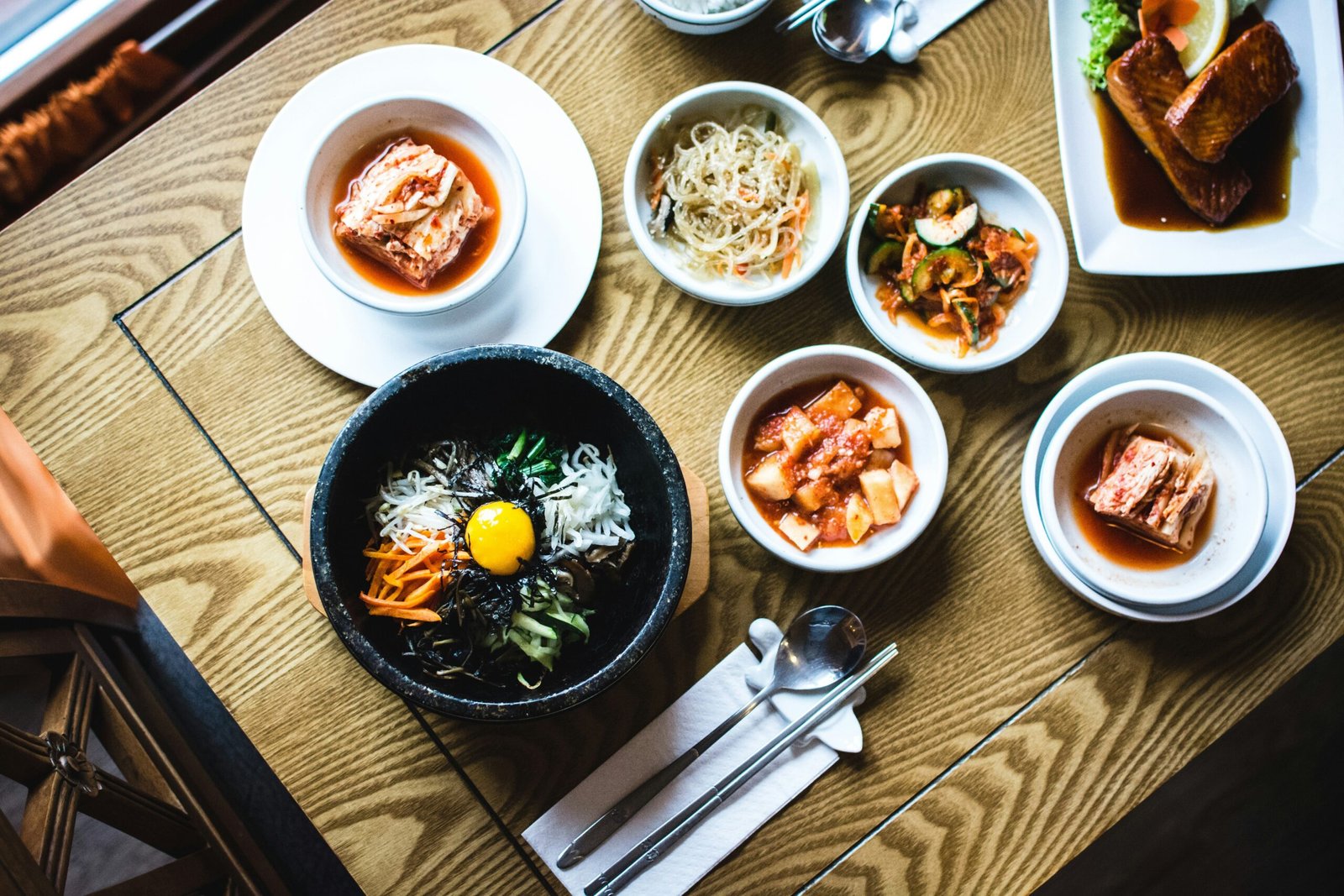Introduction to Rural French Culture
Rural French villages are characterized by their rich traditions and a communal way of life that often contrasts sharply with urban settings. These areas, often steeped in history, foster a strong sense of community and local identity, where residents maintain close ties with their neighbors and the environment. The unique cultural aspects of rural France can be observed in the distinct dialects, cuisine, and customs that vary from one village to another, reflecting the diversity and regional heritage of the country.
Language plays a pivotal role in expressing this culture. In rural areas, people often use local dialects or variations of the French language that include regional expressions, which can be challenging for newcomers to comprehend. These dialects are not merely a means of communication; they encapsulate the essence of village life, preserving centuries-old traditions and nuances. Consequently, learning essential phrases relevant to these dialects can enhance one’s ability to engage with the local community, thereby facilitating deeper connections.
Moreover, rural life in France is marked by traditional activities that take place throughout the year, such as seasonal festivals, farmer markets, and communal meals. These events serve as social gatherings that reinforce bonds among villagers, emphasizing collective participation. Understanding the socio-cultural context in which these gatherings occur not only enriches one’s appreciation of rural life but also serves to highlight the importance of specific phrases tailored to these contexts.
In summary, immersing oneself in the cultural aspects of rural French villages is crucial for effective communication. By recognizing the significance of local dialects, traditions, and community-oriented practices, one can gain valuable insights into the rural way of life, leading to more meaningful interactions and experiences within these vibrant settings.
Basic Greetings and Courtesies
When engaging in conversations within rural French villages, it is essential to start with fundamental greetings and courtesies that reflect the local culture and values. The phrase “Bonjour”, meaning “Hello,” serves as a primary greeting throughout the day until evening, when “Bonsoir” becomes more appropriate. Utilizing these greetings not only conveys respect but also establishes a friendly atmosphere that is deeply appreciated by the locals.
Once a greeting has been exchanged, expressing “Merci” signifies gratitude, an important aspect of interaction in any social setting. Whether you have received a compliment, a service, or assistance, acknowledging the gesture with “Merci” reinforces positive relationships. Additionally, when asking for something or requesting assistance, it is vital to include “S’il vous plaît” (meaning “Please”). This polite expression significantly enhances the tone of your request, indicating courteousness and appreciation for the other person’s time and effort.
In rural communities, small talk is often an integral part of daily life. Inquiring about someone’s health or family with phrases such as “Comment ça va?” (How are you?) or “Comment va votre famille?” (How is your family?) shows genuine interest in the well-being of others. Emphasizing such personal touches can create opportunities for deeper conversations and friendships. It is customary to inquire about local events or the weather, demonstrating your engagement with the community.
Overall, these basic greetings and courtesies form the cornerstone of effective communication in rural French settings. Mastering these essential phrases will not only facilitate everyday interactions but will also help foster goodwill and connection among local residents.
Navigational Phrases for Getting Around
When visiting rural French villages, mastering a few essential navigational phrases can significantly enhance your experience and help you interact more with locals. To start, if you find yourself needing to ask for directions, the phrase “Excusez-moi, où se trouve…?” (Excuse me, where is…?) is invaluable. This can be followed by the name of your desired location, such as “la gare” (the train station) or “la bibliothèque” (the library). Locals appreciate your effort in speaking their language, and this simple request can yield helpful responses.
Understanding local signage is also crucial for effective navigation. Familiarizing yourself with common words can aid in deciphering directional signs. For instance, “à gauche” (to the left) and “à droite” (to the right) will help you follow instructions from locals guiding you through the village. Additionally, terms such as “tout droit” (straight ahead) are frequently used and can assist you when you’re trying to decipher directions on your own.
In cases where you are relying on public transportation, knowing the terms related to various modes of travel is essential. For example, “train” (train), “bus” (bus), and “voiture” (car) are vital to understand. If you need information regarding schedules or routes, asking “À quelle heure part le bus/train pour…?” (What time does the bus/train leave for…?) can be particularly helpful. Furthermore, asking about fares or tickets can be accomplished with “Combien coûte un billet pour…?” (How much is a ticket to…?). These phrases not only enhance your ability to navigate effectively but also invite interaction with local residents, enriching your overall experience in the village.
Shopping and Market Interactions
When navigating local markets or shops in rural French villages, effective communication is essential. Knowing how to ask about prices, request specific products, and make purchases can significantly enhance your shopping experience. Many villagers appreciate when visitors make an effort to speak their language, which fosters a friendlier atmosphere.
One of the most fundamental phrases to master is “Combien ça coûte ?” which translates to “How much does it cost?”. This simple inquiry allows you to gauge prices and compare products. To specify items, you can say, “Je cherche” followed by the product name. For example, “Je cherche du pain” means “I am looking for bread.” The local markets often sell various specialties, and being able to articulate what you need will help you find exactly what you are seeking.
Additionally, if you’re interested in purchasing items, you can use the phrase “Je voudrais” followed by the desired product, such as “Je voudrais un kilo de tomates” which means “I would like a kilogram of tomatoes.” Such phrases demonstrate politeness and respect for the vendor’s time and effort.
Understanding food-related vocabulary is crucial in rural markets. For instance, words like “fromage” (cheese), “viande” (meat), or “fruits et légumes” (fruits and vegetables) can help you navigate through stalls effectively. Furthermore, many markets will have local specialties, often referred to as “produits locaux.” Familiarizing yourself with these terms can enrich your shopping experience and allow you to engage in more meaningful conversations with sellers.
Overall, being prepared with these essential phrases not only facilitates smoother shopping interactions but also enriches your cultural experience as you explore the vibrant markets in French rural communities.
Dining Out and Food-Related Expressions
When dining out in rural French villages, utilizing the appropriate phrases can greatly enhance your experience and foster connections with locals. Familiarizing yourself with basic food-related expressions is essential for navigating menus, placing orders, and articulating any dietary preferences or restrictions. A typical dining experience begins by reading the menu, where you may encounter various terms. For instance, “L’addition, s’il vous plaît” translates to “The bill, please,” which is crucial when you are ready to settle your payment.
When ordering food or drinks, using the phrase “Je voudrais” means “I would like,” followed by your desired dish or drink. If you’re uncertain about menu items, asking “Qu’est-ce que vous recommande?” or “What do you recommend?” can lead to delightful discoveries of local flavors. It’s also advantageous to know how to express preferences. Use “Je préfère” for “I prefer” to indicate your choice between options, or “J’ai une allergie” meaning “I have an allergy” to inform the staff of any dietary restrictions, ensuring a safe dining experience.
Moreover, engaging in conversation about culinary traditions can deepen your appreciation for the regional cuisine. You might ask, “Comment est ce plat préparé?” meaning “How is this dish prepared?” to learn more about local cooking methods. Understanding that sharing food experiences is an integral part of French culture can also enhance your interactions. Be open to learn from the locals, and don’t hesitate to share your own culinary experiences; it can lead to delightful exchanges. By mastering these essential phrases, you will not only navigate dining experiences with ease but also cultivate meaningful connections while savoring the rich culinary heritage of rural French villages.
Engaging in Small Talk
Small talk serves as an essential component of social interaction, particularly in rural French villages where community ties are strong. Engaging in informal conversations helps to build rapport and demonstrates an interest in local culture. To effectively navigate these interactions, it is beneficial to be equipped with several key phrases that incorporate daily topics such as the weather, local events, and community news.
One of the simplest yet most effective ways to initiate a conversation is by commenting on the weather. In French, you might say, “Il fait beau aujourd’hui” (It’s nice out today), which can easily lead to further discussions about the season or recent changes in the climate. Alternatively, if the weather is inclement, expressing a sentiment like “Quel temps moche!” (What awful weather!) allows you to bond over shared experiences. Such phrases not only show your awareness of the surroundings but also establish common ground with the locals.
Discussing local events is another excellent avenue for small talk. You can ask, “Avez-vous entendu parler du festival de ce week-end?” (Have you heard about the festival this weekend?). This inquiry opens the door to learning about unique traditions and cultural happenings in the village. Furthermore, locals may enjoy sharing personal anecdotes related to such events, thereby enriching your understanding of the community.
Community news is equally important in these friendly exchanges. Simple phrases like “Quoi de neuf?” (What’s new?) can elicit updates about local happenings or initiatives. Showing genuine curiosity about such matters is vital, as it signifies respect for the community’s dynamics and encourages locals to share their insights.
Mastering these small talk phrases can greatly enhance your interactions, enabling you to integrate more smoothly into the vibrant social fabric of rural French villages.
Common Questions to Enhance Communication
In any interactions, especially in rural French villages, asking the right questions can significantly enhance communication and foster a sense of connection with locals. Knowing essential phrases will not only help you in engaging conversations but also show respect for the local culture and language. Here are some common questions that can be invaluable during your visits.
One of the most pertinent questions to start a conversation is, “Comment ça va ?” (How are you?). This simple inquiry helps to establish a friendly rapport and shows genuine interest in the other person’s well-being. In rural communities, where relationships are often built on familiarity and trust, expressing concern for someone’s health can lead to deeper discussions and strengthen connections.
After establishing a personable greeting, consider asking about recommendations. Phrasing such as “Pouvez-vous me recommander un bon restaurant ?” (Can you recommend a good restaurant?) enables you to discover local dining spots that are not just popular but cherished by the community. Locals often take pride in sharing their personal favorites, which can enhance your culinary experience significantly.
Additionally, showing curiosity about local customs can be both educational and enriching. Asking questions like “Quelles sont les traditions locales que je devrais connaître ?” (What local traditions should I know?) opens the floor to discussions about village celebrations, cultural events, and historical practices. This not only increases your understanding but also highlights your respect for the local way of life.
Lastly, expressing interest in the daily life of the villagers can cultivate camaraderie. A question such as “Comment se passe une journée typique ici ?” (What is a typical day like here?) signifies your desire to learn about and engage with their lifestyle. Asking thoughtful questions fosters meaningful interactions that can lead to memorable and enriching experiences in rural settings.
Understanding Local Dialects and Variations
When communicating in rural French villages, it is essential to recognize the significance of local dialects and variations, which are often rooted in the historical and cultural context of the region. These dialects not only enhance the richness of the French language but also reflect the unique identity of the communities where they are spoken. Each region has its peculiarities, which can result in differences in pronunciation, vocabulary, and even grammatical structures, setting a distinct tone apart from standard French.
For instance, in regions such as Provence, one might encounter the use of the word “pichou” to refer to a small child, while in the northern part of France, terms like “loulou” might be favored in a similar context. Furthermore, the word “pain” (bread) can be locally qualified by the specific type, such as “pain de seigle” (rye bread) or “pain au levain” (sourdough bread), revealing variations that speak to local agricultural practices and culinary customs. Understanding these local terms is crucial when engaging with residents and helps foster an authentic connection.
Additionally, southern regions often include expressions influenced by Occitan, which can add layers of meaning to everyday conversations. For instance, the phrase “Ça boume?” is a regional inquiry equivalent to “How are you?” that reflects a friendly, informal tone unique to rural social exchanges. Adapting to these dialectical nuances not only enriches one’s ability to communicate but also demonstrates respect and appreciation for the local culture.
In navigating these regional dialects, one can gain invaluable insights into the lifestyle and traditions of rural French communities. Embracing the variations in language is an essential step towards creating meaningful interactions and understanding the depth of the rural French experience.
Tips for Practicing and Improving Language Skills
Practicing and improving your French language skills, especially in the context of rural French villages, can be both rewarding and challenging. To enhance your learning experience, consider integrating a variety of methods that suit your personal preferences and learning style. One of the most effective ways to learn a new language is through the use of language apps. Applications like Duolingo, Babbel, or Memrise can provide a structured approach to building vocabulary and grammar skills at your convenience. Regularly spending a few minutes each day on these platforms can result in significant improvements over time.
Another beneficial strategy is to engage with local speakers. Engaging in conversation with native French speakers can dramatically boost your language proficiency. If you reside in or visit a rural village, take the initiative to converse with locals. Whether it’s a friendly chat in the market or participating in community events, these interactions not only enhance language skills but also offer insights into local culture and customs. You may consider arranging language exchange meet-ups where locals can practice their English or other languages in exchange for helping you with your French.
Immersion is a vital aspect of language learning. Placing yourself within the French-speaking environment can deepen your understanding and facilitate real-world language use. This could mean attending local festivals, visiting libraries, or engaging in volunteer opportunities where French is spoken. Watching French films, listening to local music, or reading French literature can also significantly improve both listening and reading comprehension. Through these immersive experiences, you develop a natural intuition for the language, enabling you to speak more fluently and confidently.
















